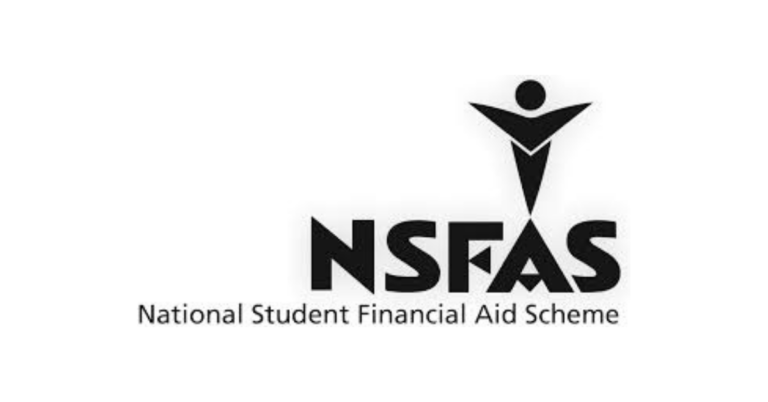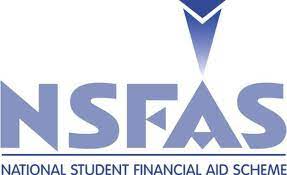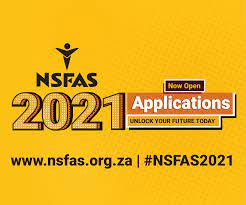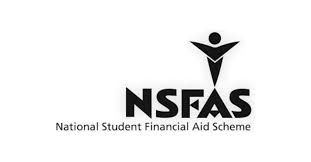NSFAS Bursary Application 2026 – A Detailed Guide
The National Student Financial Aid Scheme (NSFAS) is an essential program aimed at helping South African students from disadvantaged backgrounds access higher education. As the cost of tertiary education continues to rise, NSFAS bursaries provide financial assistance to cover tuition fees, accommodation, transport, and other essential costs. The NSFAS bursary application for 2026 is an important process that every prospective student seeking funding for higher education should understand.
This comprehensive guide will walk you through everything you need to know about applying for an NSFAS bursary in 2026— from eligibility requirements to the application process, important deadlines, and tips for a successful application.
What is NSFAS?
The National Student Financial Aid Scheme (NSFAS) is a government initiative that offers financial aid to South African students attending public universities and TVET colleges (Technical and Vocational Education and Training). NSFAS primarily assists students who cannot afford to pay for their studies and aims to ensure that no deserving student is excluded from education due to financial constraints.
NSFAS funding is offered as a bursary, meaning it is non-repayable if the student meets the terms and conditions of the bursary. This includes academic progress and completion of studies within the prescribed time.
What Does the NSFAS Bursary Cover?
The NSFAS bursary is designed to cover the basic educational needs of students. Depending on the type of study and the institution, the following expenses are generally covered:
- Tuition Fees: Full coverage of tuition costs at public universities and TVET colleges.
- Accommodation: Whether on-campus or accredited off-campus accommodation.
- Transport: Funding for public transport or travel to and from university/college.
- Study Materials: Includes textbooks and other essential study materials.
- Personal Allowance: This may cover miscellaneous expenses like food and personal care items (depending on the allowance structure).
Eligibility Criteria for NSFAS Bursary Application 2026
Before you begin the application process, it’s crucial to make sure you meet the eligibility requirements. While the specific criteria can vary from year to year, the following general guidelines apply to the 2026 NSFAS bursary application:
1. South African Citizenship
You must be a South African citizen to apply for NSFAS. Permanent residents and foreign nationals are not eligible for funding.
2. Financial Need
NSFAS bursaries are primarily awarded to students from households with a combined annual income of less than R350,000. This is a means test to ensure that financial aid is provided to those who need it the most.
3. Enrollment at a Public University or TVET College
You must be registered at a public South African university or a TVET college. NSFAS covers both undergraduate and certain postgraduate programs at public institutions.
4. Academic Requirements
You need to meet the minimum academic requirements for your specific institution and program of study. While NSFAS itself doesn’t set specific academic criteria, the institution you apply to may have its own set of requirements.
- Undergraduate students: Must have passed previous courses to remain eligible for the bursary.
- Postgraduate students: NSFAS funding for postgraduate studies is typically limited to specific fields of study and programs.
5. Age Requirement
There are generally no age restrictions for undergraduate students, but applicants for postgraduate funding need to meet specific requirements set by NSFAS and the higher education institutions.
How to Apply for the NSFAS Bursary 2026
The NSFAS application process for 2026 follows a simple, step-by-step procedure that you can complete online via the MyNSFAS portal. Below is a detailed guide on how to apply:
Step 1: Create an Account on MyNSFAS Portal
To begin, you need to create an account on the MyNSFAS portal:
- Go to the official NSFAS website
- Click on “Apply”: Navigate to the “Apply” section and click on the relevant button to create an account.
- Enter Personal Information: You will need to provide your ID number, email address, contact information, and password. This information will help you create a profile for your application.
- Submit Your Application: After filling in the required details, you can submit your application. You’ll then be able to track your application status via your MyNSFAS account.
Step 2: Complete the Application Form
Once your account is created, you will need to fill out the full NSFAS application form. Make sure to carefully complete all sections of the form, including:
- Personal Details: Include information such as your full name, identity number, and contact details.
- Income Details: You will need to provide information about your household income. This helps NSFAS assess your financial need.
- Academic Information: Provide details about your current or prospective studies, including the institution and program you plan to enroll in.
- Bank Details: You may also be asked to provide your banking information for payment of allowances.
Step 3: Upload Supporting Documents
NSFAS requires several documents to verify your eligibility. These documents should be uploaded to your MyNSFAS portal. The typical documents you will need to submit include:
- South African ID (or birth certificate if you don’t have an ID yet).
- Proof of income: Payslips, tax returns, or affidavits from your parents/guardians (if employed).
- Proof of residence: A utility bill or lease agreement.
- Proof of registration: A letter of acceptance from your university or TVET college (or a proof of enrollment).
- Banking details: A copy of your bank statement or bank details for allowances.
Ensure that all documents are clear, legible, and in the correct format (PDF, JPEG, or PNG). NSFAS will reject unclear or incomplete documentation.
Step 4: Submit Your Application
Once all sections are complete and documents uploaded, you can submit your application. After submission, you will receive a confirmation email with your application reference number, which you can use to track your application status.
Step 5: Track Your Application Status
After applying, you can monitor the progress of your NSFAS application by logging into your MyNSFAS portal. You’ll receive updates on whether your application has been approved or if there are any issues with your submission.
- Approved: If successful, you’ll receive a confirmation of your funding.
- Pending: If further information is required, you will be prompted to upload additional documents.
- Rejected: If your application is unsuccessful, you’ll receive a notification with reasons.
Step 6: Funding Confirmation
Once NSFAS approves your bursary, the funds will be allocated, and payments will be made directly to your university or TVET college. If you’re a first-year student, the payments may take a bit longer, but you should start receiving notifications when funds are disbursed.
Important NSFAS Bursary Application Deadlines for 2026
The application deadlines for NSFAS 2026 may vary slightly depending on the university or college. However, NSFAS applications for the 2026 academic year typically open around September 2024 and close by November 2024. It is essential to check the official NSFAS website or your institution’s financial aid office for the exact dates.
- Application Opening Date: September 2024
- Application Closing Date: November 2024 (Check for exact dates)
What Happens After You Apply?
After submitting your NSFAS bursary application, the process generally follows these steps:
- Application Review: NSFAS will assess your application and financial need.
- Notification: You’ll be notified of the outcome via your MyNSFAS account or email.
- Approval: If approved, your bursary will cover tuition, accommodation, study materials, and other approved allowances.
- Payment: The funds are paid directly to the institution or to the student (depending on the agreement).
Tips for a Successful NSFAS Application
To increase your chances of a successful application, consider the following tips:
- Submit all required documents: Incomplete or missing documentation can lead to delays or rejection.
- Apply early: Don’t wait until the last minute to submit your application. Early submission ensures you don’t miss the deadline.
- Verify eligibility: Make sure you meet the NSFAS eligibility criteria before applying.
- Keep track of your application: Regularly log into your MyNSFAS portal to track the status of your application and address any issues promptly.
The NSFAS bursary for the 2026 academic year provides South African students with an incredible opportunity to pursue higher education without the burden of tuition fees and other associated costs. By following the application process outlined in this guide, you can successfully apply for funding and ensure that your education is supported by this vital financial aid program.
For more information and to apply for NSFAS funding, visit the official website at www.nsfas.org.za.
Let me know if you need more information or assistance with any part of the NSFAS application process!




